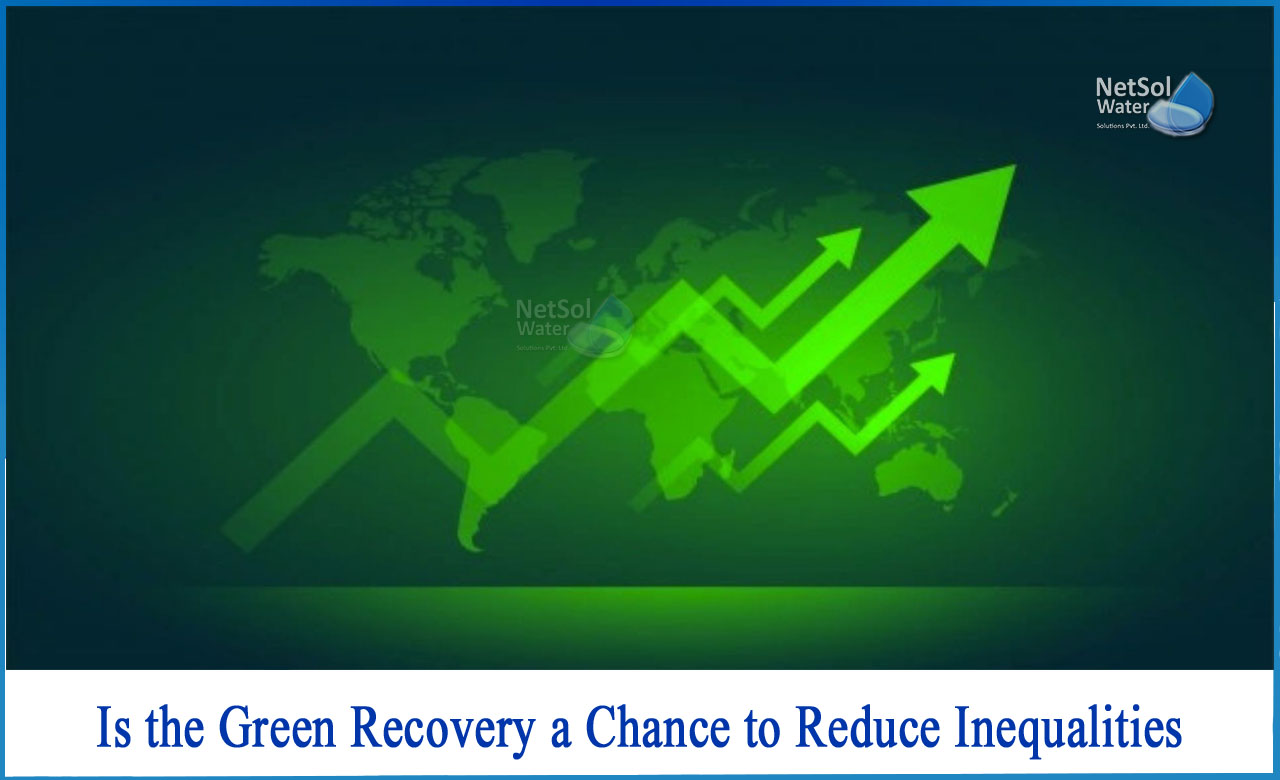Is the green recovery a chance to reduce inequalities?
Inequalities in wealth and opportunities have grown during the last decade. The wealth of the top ten percent is more than ten times that of the poorest ten percent, while conventional avenues for social mobility have dried up. While official income inequality data for 2020 will not be available for another two years, and the impact of government policies on disposable income will need to be carefully examined, it is reasonable to believe that the pandemic has had the greatest impact on low-educated and lower-income households. This is partly due to their lower wealth, which means they have less "cushion" to weather financial shocks and are less likely to be able to telework.
The pandemic serves as a stark reminder that the poorest households are also the ones that suffer the most from environmental deterioration. Unsustainable production and consumption habits contribute to climate change, air pollution, and the likelihood of novel zoonoses emerging as a result of contact between wildlife, cattle, diseases, and humans. Each of these effects is magnified for low-income households, and their effects compound. For example, air pollution is frequently higher in impoverished neighbourhoods, increasing the chance of developing comorbidities (such as cardiovascular and respiratory disorders), which are linked to the most severe COVID-19 infection effects.
What potential does green recovery have?
The green recovery has the potential to alleviate both environmental deterioration and existing inequities at the same time. The green revolution, and the profound changes it entails for our economic systems, can contribute to making our societies not just greener but also more equitable.
How do we make sure that the transition is both green and inclusive?
Four important components should underpin policy packages for a green and inclusive transition.
First, any regressive effects of pricing carbon emissions or other environmental externalities on low-income households must be considered. A range of initiatives, including well-designed programmes to recycle the excess tax income generated by such price-based measures, might lessen the probable regressive impact of pricing carbon, in addition to the importance of larger policy reforms to address inequality.
Second, to promote workers' reallocation from polluting to greener sectors, skills policies, active labour market policies, and well-designed income support measures are required. A fair transition necessitates programmes to assist workers in the most adversely affected industries, such as coal mining. Workers' skills must be upgraded in order for them to find new work, and well-targeted income support programmes are critical in assisting them through the transition.
Third, place-based policies will be required to facilitate the structural transformation of local economies that are strongly reliant on fossil fuel extraction or carbon-intensive businesses. According to local competitive advantages, possibilities, and history, the specific policy package for an inclusive green transition varies from one region to the next. For example, resource-rich locations may face a fall in hydrocarbon extractive sectors but profit from rising demand for essential minerals used in low-carbon technology (such as lithiumfor the batteries). Heavy-industry-specialized regions may need to invest in the infrastructure needed to decarbonize these industries (e.g. carbon capture, utilisation and storage facilities). Social discourse, investments, social security, and skills and education policies tailored to local requirements are all critical components of these economies' structural change.
Finally, an inclusive green transition will necessitate efficient and responsive governance. The systemic transformation required to reach the Paris Agreement's aim and reverse environmental deterioration will necessitate alignment across a wide variety of policy areas. To ensure this coherence, sound governance structures would be required. It will also be necessary to provide clear and consistent access points for civil society and citizens to participate in the policy-making process.
Conclusion
The green recovery is a tremendous problem, but it also presents a huge potential to create more equitable and environmentally friendly society. In this endeavour, all nations are working together, and we are assisting national efforts to achieve a green, inclusive, and resilient recovery through a variety of initiatives.\Netsol Water is Greater Noida-based leading water & wastewater treatment plant manufacturer. We are industry's most demanding company based on client review and work quality. We are known as best commercial RO plant manufacturers, industrial RO plant manufacturer, sewage treatment plant manufacturer, Water Softener Plant Manufacturers and effluent treatment plant manufacturers. Apart from this 24x7 customer support is our USP. Call on +91-9650608473, or write us at enquiry@netsolwater.com for any support, inquiry or product-purchase related query.



